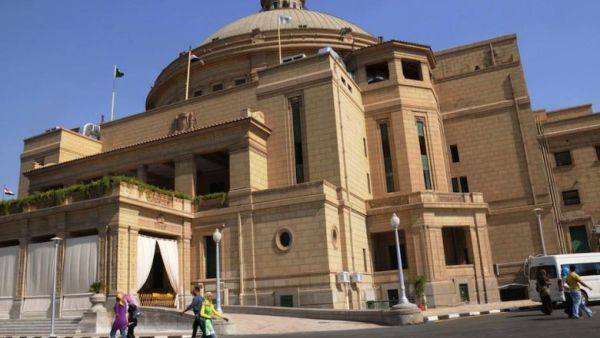Public universities across Egypt have in recent years instituted a number of arguably ridiculous bans on what most people probably would consider very ordinary items to wear or bring to a university campus.
Reactions from the public have been mixed, with some expressing anger and annoyance while others even have applauded the measures. These bans are being taken so seriously by university administrations that fines have been issued to students who refuse to abide by them.
No ripped jeans, tight clothes, or cursing
Manoufiya University stirred controversy in September when the dean of one of the faculties said that a ban was going to be imposed on “ripped or faded pants from campus.”
Alexandria University followed suit, with the dean of the Faculty of Agriculture issuing a statement saying that not only would ripped jeans be banned, but also tight clothes and galabiyas. “This type of attire is inappropriate and goes against our values, traditions and religion,” he said. “I immediately ordered our head security officer to meet with the girls and inform them that their attire isn’t allowed on campus. I also issued directives allowing security guards to ban any student wearing such clothes from entering campus,” the dean ranted on.
The Department of Commerce at the same university enforced the same ban, but added that anyone entering the campus would be fined with LE 50 ($2.81). The department also prohibited curse words to be used on its Facebook page.
- Egyptian Lawyer Who Said Rape is a National Duty Sentenced to 3 Years
- Those Who Deny the Hijab is Compulsory are Extremists: Al-Azhar
No Bermuda shorts, no slippers
Public universities have also prohibited students from entering their campuses wearing Bermuda shorts. The rationale behind the decision was that wearing them contributed to sexual harassment. University deans took the opportunity to throw in a ban on slippers, arguing that they were not appropriate for higher educational institutions.
No niqab
The niqab, or full body veil, was banned in Egyptian public universities in 2014. At the time, it stirred a lot of controversy and public debate. President of Cairo University Gaber Nassar justified the ban by claiming that students have complained that it made communication difficult, especially with niqab-wearing lecturers.
No water bottled, no spray cans
Perhaps the weirdest item banned from universities in Egypt is water bottles. In 2015, Al-Azhar University, which is also the Sunni Muslim world’s most prominent religious institution, prohibited water bottles as well as spray cans from being brought into campus, arguing that they can be used in student protests.
This article has been adapted from its original source.








